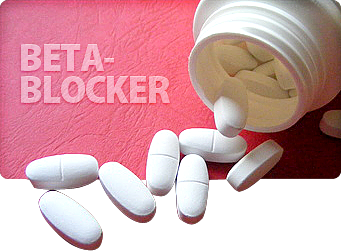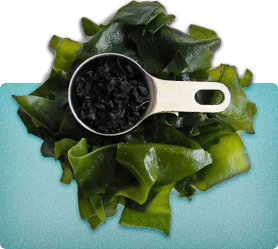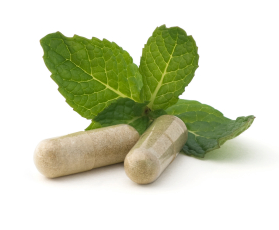Popular Articles
- Thyax Supplement Facts
- Best Thyroid Supplements
- Try THESE Instead of Synthroid
- T3 - Weight Loss
- Boost an Underactive Thyroid
- Armour Thyroid Review: Drug for Underactive Thyroid
- Thyroid Health | How to Boost T3 and T4 Levels
- Thyroid Health | The Best Vitamins for Hypothyroidism
- Ginger and Weight Loss
- Best Weight Loss Supplements for Men and Women
- More Articles ...
 10 Thyroid TreatmentsIn This Article
There are different options in treating thyroid disorders, and these are the ten synthetic and natural treatment options that one can consider.
There are two common kinds of thyroid disorders, and these are hypothyroidism or hyperthyroidism. As they are different conditions affecting the same gland, they are treated with different types of prescription medication. Apart from prescription medication, though, there are also various ways to treat thyroid problems naturally and holistically. If you do suffer from any thyroid condition, then you might want to take a look at your options – both synthetic and natural – to find out the best course of action that you can take to minimize symptoms and improve your condition. Prescription MedicationDifferent types of prescription medication are prescribed depending on the type of thyroid disorder. Hyperthyroidism, for example, causes the body to produce excess thyroid hormones, causing unwanted symptoms. The condition and the symptoms are treated with the following: 1) Beta Blockers
While these do not alter thyroid hormone levels in the bloodstream, they help increase metabolism by counteracting the effects of thyroid hormones released into the bloodstream. 2) Antithyroid DrugsAntithyroid drugs such as methimazole and propylthiouracil work by accumulating in the thyroid tissue and blocking excess production of thyroid hormones. Propylthiouracil or PTU converts T4 hormones to T3 hormones, which are metabolically active. While these prescriptions medications are effective, they can suppress the bone marrow’s production of white blood cells, which can be dangerous to the body. 3) Radioactive IodineRadioactive iodine or isotope iodine 131 is a one-time treatment which is taken in liquid or pill form. The iodine treatment is an ablative form of treatment that destroys active and over-producing cells in the thyroid. Radioactive iodine treatment is localized within the thyroid because only thyroid cells pick up iodine in the body. This form of treatment has been used for fifty years already. While it is safe, it is not recommended for pregnant and lactating women, as well as those with eye disease. 4) Levothyroxine (T4)
Because the body does not produce enough thyroid hormones, it must be aided in order for it to produce the right amount. Today, synthetic levothyroxine (T4) is prescribed to patients. T4 is a stable form of thyroid hormone, which is naturally converted to T3 – the most active thyroid hormone in the body - within the bloodstream. Dosage for T4 vary depends on a variety of factors such as age, weight, and severity of the condition. The average dose is 1.6 mg of T4 per 1 kilogram of body weight, which is anywhere around 100 to 150 mg of T4 every day. Children require larger doses per kilogram. While this form of treatment is effective, it only works as long as the patient continues to take the T4, requiring lifelong treatment. 5) Thyroid SurgeryThe fifth treatment option is similar for both hyperthyroidism and hypothyroidism. Surgery involves the removal of a part of or the entire thyroid. The severity of the thyroidectomy will depend on the severity of the condition, which will be determined by a physician. Thyroid surgery requires little downtime, and many surgeons send their patients home around twenty-four hours or the morning after the operation. Some partial surgeries are also done as out-patient procedures. This, of course, will depend on the patient’s age and health, among other factors. Natural TreatmentsThere are various natural treatments for thyroid disorders, ranging from natural supplements, increased intake of vitamins and minerals, consumption of specific herbs to homeopathic methods such as reflexology and acupuncture. Diet, too, is one way to treat thyroid problems naturally. These alternatives are slowly emerging into the mainstream market because of the fact that most prescription medication can be costly and can produce possible side effects. Likewise, most natural treatments are safe, easy to follow and are promote overall wellbeing by improvising body function – not just for that of the thyroid gland. Of course, plenty of natural treatments can be used in conjunction with prescription medication. Several types of natural treatments are as follows. 6) HerbsFor hundreds of years, man has turned to herbs to cure a wide range of ails and woes.
Kelp, Iceland, and Irish moss are excellent sources of iodine. Valerian calms the body, helping counteract symptoms of hyperthyroidism. These are just a few of the many herbs that can benefit the thyroid gland. What’s great about these herbs is that they do not just promote thyroid health, they are also usually used to treat other health problems as well.
7) Natural Supplements
There are various natural supplement brands that come in the form of tablets and pills. These usually contain one potent herb as its main ingredient and several minor ingredients as well. Some natural supplements contain substances taken from thyroid glands of other animals. 8) Vitamins and MineralsVitamins and minerals are also important for proper thyroid function. Here is a list of the important vitamins and minerals that promote good thyroid health:
9) AcupunctureAcupuncture is an age-old form of treatment that is used to prevent and treat diseases as well as improve well-being. This form of treatment is based on the premise that Chi or energy, flows through the body through meridians or pathways. Illness and pain come out as a result of blocked meridians, so to improve circulation of Chi throughout the body, tiny-hair strand like needles are inserted into specific parts of the body. For thyroid problems, the target areas are usually on the neck points, near the thyroid gland, on the hand, and outside the forearm. Acupuncture can be done on a weekly basis to restore hormonal balance and promote overall health. For better results, this treatment should also be supplemented with proper diet. 10) DietWhile diet does not readily cure the condition, following a thyroid-friendly diet can improve the condition and health of the thyroid, promoting hormone balance. Following a good diet also prevents nutritional deficiencies, which are the leading cause of thyroid disorders. Here are some foods that are worth considering:
Of course, there are also several types of foods to avoid when suffering from thyroid problems. Processed and refined foods are definitely first on the list, but there are also some fruits and vegetables that, when taken in excess, can aggravate thyroid imbalance. Here are some fruits and vegetables that should be taken in moderation when suffering from thyroid problems:
Prescription Medication, Surgery or Natural Remedies?Indeed, there is more than one way to treat thyroid problems. You can choose from any of the treatments, whether they be under prescription medication, surgery or natural remedies. Some people choose not to go to the doctor and take their chances with natural treatments instead. What is important is that you are fully informed about your options so you can choose the best type of treatment that can work for you. |
|||||||||||
| Next Article: Low T3 and T4 Levels? Boost it: Heres How... |





 Initially, individuals with hyperthyroid are prescribed with medication to immediately treat symptoms brought about by excessive thyroid hormones – such as palpitations. Typical drugs prescribed for symptoms like these are beta-blockers like metoprolol, atenolol, and propranolol.
Initially, individuals with hyperthyroid are prescribed with medication to immediately treat symptoms brought about by excessive thyroid hormones – such as palpitations. Typical drugs prescribed for symptoms like these are beta-blockers like metoprolol, atenolol, and propranolol. Treatment for hypothyroidism, on the other hand, is also different from hyperthyroidism.
Treatment for hypothyroidism, on the other hand, is also different from hyperthyroidism. Today, we slowly turn back to these natural wonders. There are plenty of herbs to choose from.
Today, we slowly turn back to these natural wonders. There are plenty of herbs to choose from.  Some people may find it hard to look for specific herbs in the market and in turn,
Some people may find it hard to look for specific herbs in the market and in turn,